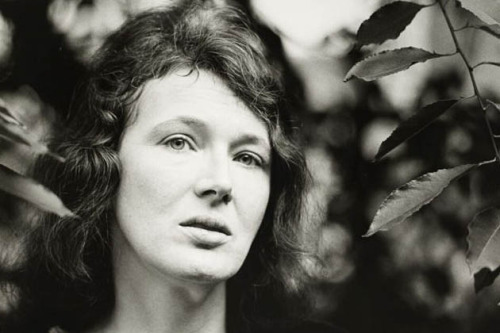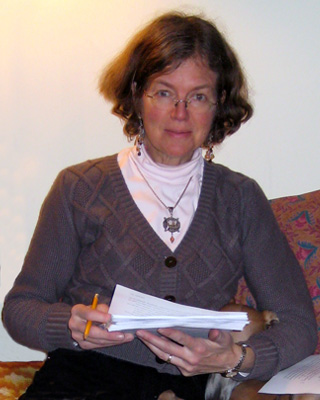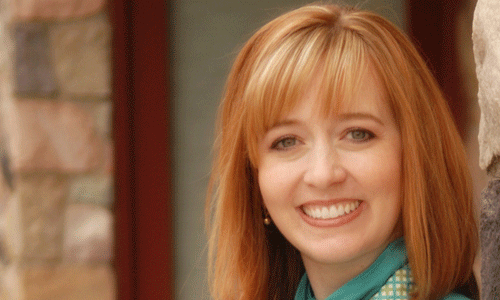With the recent release of the Into the Woods trailer, it’s a good time to reflect on the ways in which fairy tales have become such an integral part of our cultural mindset. They have always been a popular medium; from their roots as moralizing oral tales to their most well-known present form as the notoriously circumscribed adaptations of Disney, fairy tales have fascinated and enchanted audiences of all ages. They have created beloved characters and imparted lessons about the world around us – though all too often these characters and lessons are simplified to an extreme degree, resulting in stereotypes (passive princess, evil stepmother) and dichotomies (good/evil) that support harmful ideologies and show us a biased (most often against women) view of our society.
But fairy tales don’t need to be a negative form of storytelling, and retellings of fairy tales have been challenging the originals’ simplicity for years, while using the same language and sense of wonder that we have all come to love. Into the Woods is just one example of the ways in which the common images and tropes of fairy tales can be recoded and used to powerful effect. After all, fairy tales are one thing that many cultures have in common, a strength of shared memory of which few genres can boast. But taking back and transforming the fairy tale is just half the story – the women who do it are the other half, female storytellers who have been reclaiming a tradition that has been usurped by the stories of Grimm and Perrault. Women have been writing fairy tales for centuries, stretching back to the conteuses (women writers) of France – we just haven’t been told their side of the story. Well female authors today are trying to change that, with five names coming to the fore of the movement. Without further ado, here’s what fairy tales you should be reading and why:

1. Angela Carter
Angela Carter isn’t modern, per se, as a lot of her work was published in the 80s, but she’s a huge influence on the women tellers of tales today, and with good reason. Carter’s collection of fairy tale retellings, The Bloody Chamber, is full of imaginative, dark, and insightful deconstructions of fairy tale tropes and patterns. She brings together a wide variety of voices and traditions to construct a rich, transformative dialogue, one that both ironizes and praises previous works. She challenges the stereotypes of women often found in these tales, questioning and reworking both the pure princess and the evil witch. Carter explores the “subterranean areas behind everyday experience” to help us better understand that which is unseen and unsaid in our culture. If you’re into the Gothic, terror, and the unconscious, check Carter out.

2. Kate Bernheimer
Kate Bernheimer hasn’t only written fairy tales – she’s studied them, too. Her extremely informative essay, “Fairy Tale is Form, Form is Fairy Tale” delves into what exactly fairy tales are made of and what makes them so effective in telling their story (My favorite quote from the essay: “Can you imagine submitting a story to a writing workshop in which the first paragraph introduces two brothers, but one of the brothers is never mentioned again?” Fairy tales get away with so much), and she has edited multiple collections of tales, including Mirror, Mirror on the Wall, in which women writers think back on and discuss theiry favorite fairy tales, and My Mother She Killed Me, My Father He Ate Me, which includes 50 modern retellings of old stories. As you can imagine, with so much experience on the form, her own tales are exquisite. At times both whimsical and tragic, Bernheimer’s stories touch on what it means to be a girl, a woman, or to be feminine – whether in a magical land with dinosaurs wearing pajamas or no.

3. Kelly Link
Link’s amazing collection of stories, Magic For Beginners, is actually available for free online – so if your pockets are hurting but you’re still itching to dive into some feminist fairy tale-esque fiction, start here! Stranger Things Happen is Link’s collection of more straightforward fairy tales, but, either way, you won’t be disappointed. Link’s stories blend older traditions with the relatively new style of magical realism, blending villages in bags and cats in clothes with New York thrift stores and tourist attractions. Her language is beautiful, and easily works the absurd into the mundane without batting a textual eye. She examines themes of loss, longing, and love, all while engaging you in worlds barely, yet wonderfully believable. If you’re over this whole Frozen phase, or if you’re just getting started, you might check out “Travels with the Snow Queen,” which takes a smart look at the place of heroines and heroes.

4. Robin McKinley
This name might be more familiar to some of you – she’s written a wide variety of books, including her fantasy novels, The Blue Sword and The Hero and the Crown. She may be most well-known, however, for her book-length retellings of fairytales. The authors I’ve related so far have written mostly in collections, or shorter works, but McKinley’s novels are lengthy and rich. They include Beauty, Rose Daughter (both retellings of Beauty and the Beast), Spindle’s End (Sleeping Beauty), and Deerskin (Donkeyskin). They all seek to dismantle the simplistic and passive woman character and give her motivations, emotions, history, and goals. At this, they overwhelmingly succeed. Their heroines are people, not functions in a story, and they do the acting, rather than be acted on. They seek to overcome some kind of trauma, often caused by the prejudiced system in which they find themselves, and must discover who they are along their journey. Beautifully written and imaginatively retold, these stories can be hard to read at parts (they deal with some big issues), but are certainly worth it.

5. Gail Carson Levine/Shannon Hale
Yes, I’m cheating, but both of these women take apart fairy tales and reconstruct them into books that are a joy for both children and adults to read. Ella Enchanted, which unsurprisingly received the Newbery Award, was my very first introduction to fairy tale retelling, and it inspired me to read more fantasy and genre fiction by women authors. It seems as though it inspired Levine as well, as she has continued to write wonderful adaptations that tell the princess’s side of things: “In Sleeping Beauty, the prince falls in love with the princess when he knows only three things about her: she’s pretty, she’s a princess, and she doesn’t snore. In Princess Sonora and the Long Sleep… I give the prince a real reason to kiss Sonora even though, after 100 years, she’s covered with spider webs!” If you’re looking for an easier read that nevertheless delivers charming characters, witty dialogue, and emotionally charged stories, Carson Levine is the way to go.

Shannon Hale has also won a Newbery Award for a book (Princess Academy) that, while not a strict fairy tale adaptation, certainly explores and deconstructs many of the themes of the form. Her Books of Bayern series, however, started off as a retelling of ‘The Goose Girl,’ a title that the first book shared, and, like many of these authors’ works, seek to tell the woman’s side of the story. The Goose Girl is a detailed, thoughtful look at the fairy tale that gave it its name, and it creates a fascinating world that its sequels populate with interesting and strong female characters. If you liked Princess Academy (or Ella Enchanted!), don’t miss out on Hale’s other works.
I hope this article has given you some great starting points from which to leap off and start your own fairy tale adventure. Women may be excluded from the traditional canon, and female characters may be simplified and used as tools, but we always have the ability to fight back, as these women have done, and redefine what literature has made us.
Have you read any of these books? Do you have your own favorite fairy tale author? Let us know in the comments!

1 thought on “A New Once Upon A Time: 5 Female Authors of Fairy Tales to Check Out”